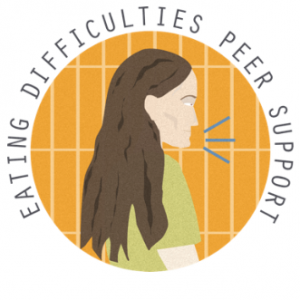
It’s quite understandable if your get up and go has got up and gone during these times of uncertainty, especially if you have August exams on the horizon. Remember that you’re not alone in feeling this way.
We’ve put together some tips which we hope will help get your motivation back on track. If you do feel like you need further support, please email us at wellbeing@exeter.ac.uk or call us on 01392 724381 to organise an appointment.
Regular zzzzzzzzzzzs
It’s tempting to go to sleep whenever we like during these times and not set an alarm for the following morning, but this might not be doing you any favours if motivation is an issue. Try to stick to a routine of going to bed and waking up at the same time each day to maintain healthy sleep and therefore support your energy levels during the day. You can always switch off the alarm on the weekends.
Get some structure
Our lives are usually structured by study or work, so if those are absent you can create a structure for yourself. You could create a timetable each day, or simply set yourself goals – whatever suits you best. Doing this can also help you to differentiate between the ‘working week’ and rest days. You can find further information about ‘scheduling’ and ‘unscheduling’ in our procrastination booklet, How To Just Do It.
Cut yourself some slack!
Stress, worry and feeling overwhelmed often leads to procrastination and makes it harder to motivate ourselves. You can end up in a vicious cycle if you then get frustrated with yourself for not completing tasks. Remember to cut yourself some slack, as these are difficult times! Also take regular breaks from study or work and seek activities that reduce your stress levels in order to be kinder to yourself. Further information for managing stress can be found in our Stress Busting booklet.
Plan in rewards
It’s easy to ‘procrastinate’ by only doing tasks we enjoy. If you’re finding it hard to tackle tasks that you aren’t so keen on, then why not plan a reward for when you complete them? Having something to look forward to after completing a necessary task such as revision or a work project can help. Add a daily structure into the mix and that will help you to focus on the task in hand and have a set time for hobbies or activities you enjoy.
Break it down
When your motivation is lower, break tasks down into smaller parts and tackle one at a time. For example, if you need to tidy your bedroom start with more manageable steps such as picking things up off the floor, tidying the desk, making the bed. As you complete each task it provides a sense of achievement and builds motivation to take on the next step.
Order your tasks
Order tasks in terms of difficulty to create a hierarchy. Start with the easiest tasks first. Once you complete a task, this makes you feel accomplished and builds your motivation for tackling the next. You can move upwards in difficulty as you progress.
Challenge your thinking
We often make false excuses or assumptions about why it’s a good idea to put off the task in hand. Examples might include ‘I’m too tired,’ ‘I haven’t got everything I need,’ or ‘this piece of work isn’t going to go well’. This way of thinking is often not accurate and contributes to our lack of motivation or procrastination. Ask yourself whether there are any factual reasons to put off the task, or if there are any parts of the task you can get started with despite the conditions not being ideal.
To-do lists and goals
Many people find setting goals and writing to-do lists to be really beneficial. When setting to-do lists, it’s important to ensure that what you are setting yourself is achievable for the time available. Alternatively, why not keep a ‘reverse to-do list,’ where you keep track of all the tasks you have done – it’s great when you see that grow!
Time to get started
Use the ‘just 5 minutes’ approach to get started with a task – commit to carrying on with it for at least that period of time. Once we make a start on a task we are far more likely to see it through to completion. This techniques works best with tasks that wouldn’t take very long and you can also experiment by setting different time frames with more time consuming tasks.
We hope the above tips help. If you need more support, get in touch with us at wellbeing@exeter.ac.uk, or phone us on 01392 724381.







